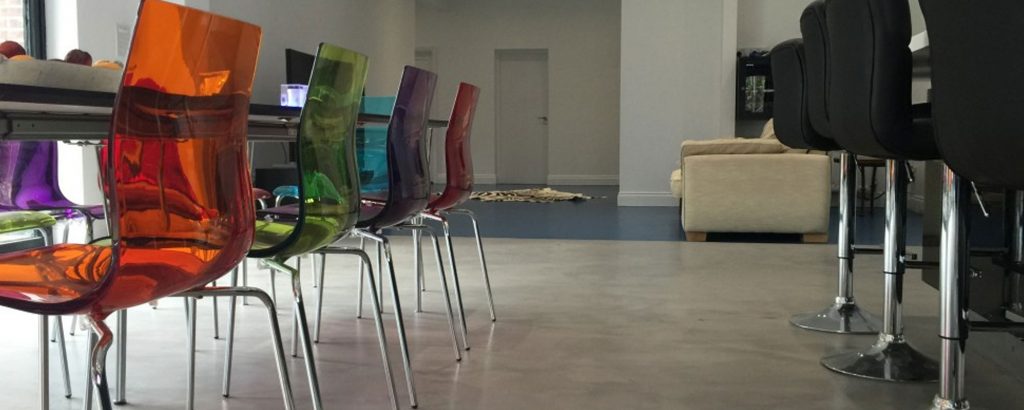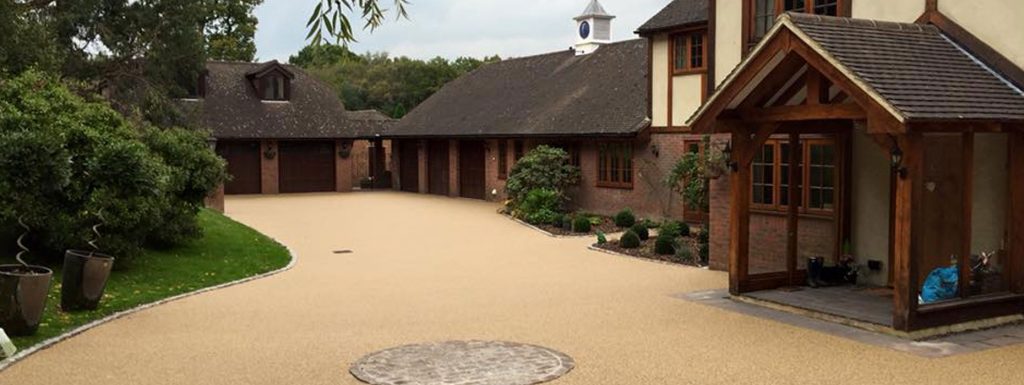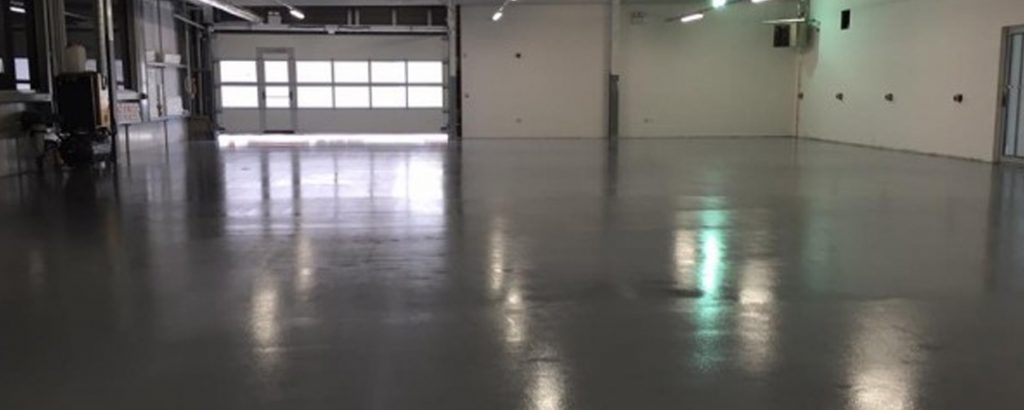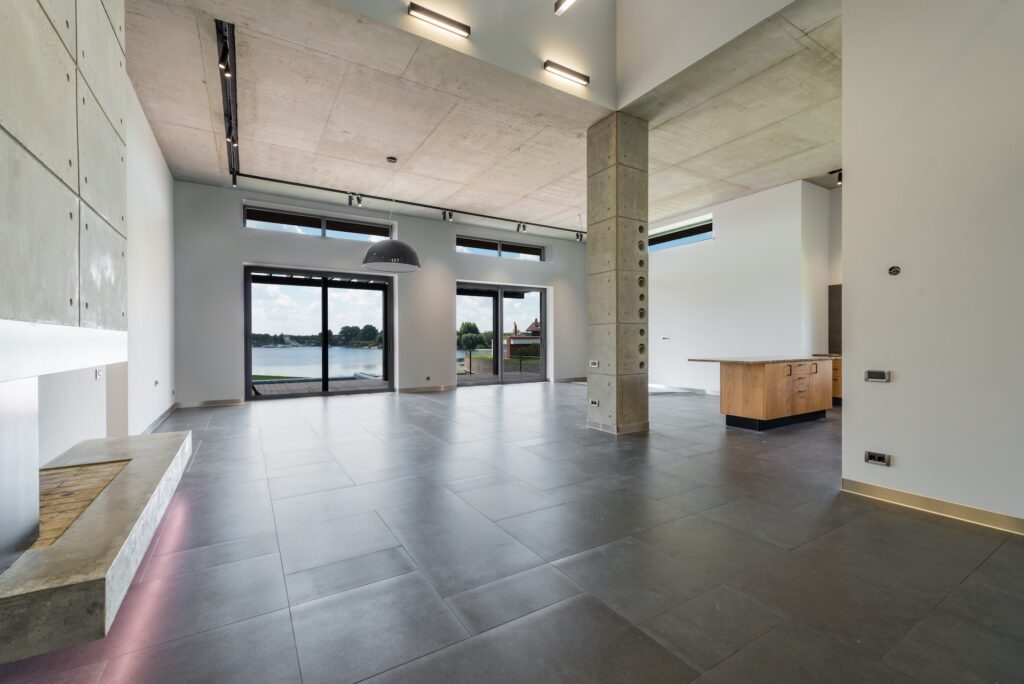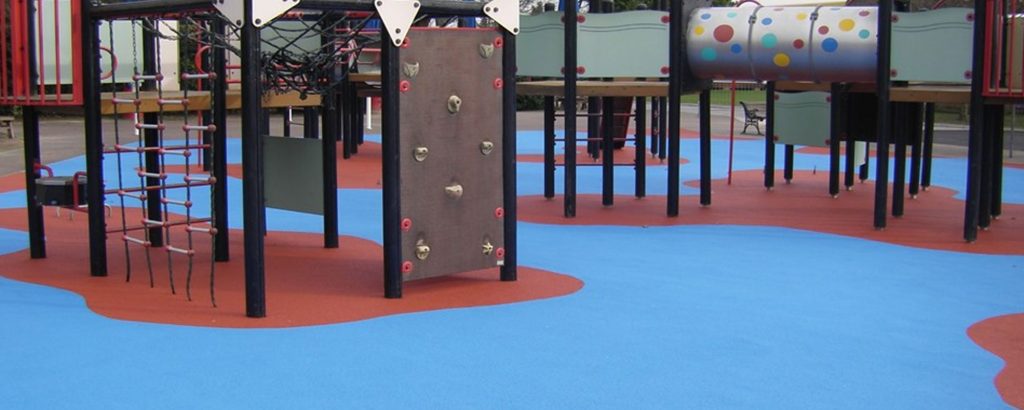Epoxy floors are famously low maintenance. They are durable, generally stain-resistant and wipe clean, making them easy to maintain, even in areas with high foot traffic. As a result, they are often used in professional settings such as garages and showrooms, or kitchens and bathrooms in the home due to their water and stain resistance.
Epoxy floors consist of resin which is long-lasting and resists wear and tear. They are not easily damaged by grease or most chemicals, making them easy to maintain even in industrial settings. They are low maintenance when compared to alternatives such as tiled floors, which can crack over time and require regular regrouting.
With just a small amount of maintenance, your epoxy floor will look its best for longer. Here’s how we suggest keeping your floors in prime condition.
Ensure professional installation for easier maintenance
Epoxy floors should be installed by professionals. If installed incorrectly, your floor is more likely to be impacted by imperfections such as bubbling.
A regular sweep avoids scratches and blemishes
Like all hard floors, epoxy floors show dust and debris. Their flat, smooth surfaces make them easy to sweep, so undertaking this regularly should keep your floors looking neat and tidy.
It is particularly important to regularly sweep and vacuum your flooring if using heavy machinery or vehicles in the area. Small stones and pieces of grit can become embedded in the resin topcoat over time which can in turn cause damage and imperfections. Keeping your floor as free as possible of particles will avoid issues arising.
In most instances, use a mop to clean up messes
Due to its smooth finish, epoxy floors are ideal for cleaning with a mop in most instances. There is no need to regularly scrub your flooring with harder brushes that can create scratches in the surface resin.
Clean up stains and chemicals quickly
Although epoxy floors are generally non-stain, particularly in a home setting, we advise that you clean up spills of any harsh chemicals and staining agents quickly to ensure their finish is sustained. Although epoxy floors are durable, they can be eroded over time if not looked after.
Avoid pressure washers
It may seem like a quicker option than a mop but when it comes to cleaning your epoxy floor, avoid using pressure cleaners such as Karchers as much as possible. Too much water pressure can cause damage to the resin in your epoxy floor, creating imperfections and reducing its lifespan. This is particularly true of industrial strength pressure washers.
Choose the right cleaning agent
Epoxy floors are resin-based, meaning that some cleaning fluids can damage the surface, which can impact the quality of your finish and the lifespan of your floor. Additionally, some soaps can leave a residue over epoxy floors that builds up over time and tarnishes the quality finish of your floor; this is particularly important if you have epoxy floors in your home, office or showroom.
Epoxy is easy to wipe clean and in most circumstances, a mop with warm water is all you need, so this should be your first choice. With more stubborn dirt, ensure you choose a mild soap or a well-diluted ammonia solution.
If you must use a soap or cleanser, ensure that it is non-alkaline and is non-abrasive; this will keep your floor’s finish intact.
Cleansers to avoid at all costs
To reiterate, it is best to avoid using soap or cleanser on your epoxy floor wherever possible – particularly as it is rarely necessary.
If you do choose to use a chemical to clean your floor, avoid acidic products, bleaches and vinegars. These can begin to break down the resin in your epoxy floor and cause damage to your finish.
How to treat stubborn dirt or stains
What if mopping with warm water isn’t enough? This can occur on rare occasions and very stubborn dirt or substances. If you feel the need to scrub your floor, choose a softer brush such as a medium bristle deck brush, which will help you to remove stubborn marks and dirt without leaving scratches.
Keep out of natural light
Although not strictly a maintenance issue, epoxy floors are not UV resistant. Keeping your epoxy floor away from natural light will ensure it does not yellow over time. If that is not an option, then ensure it is installed with a UV resistant polyurethane top coat. This will keep it protected from the sunlight and ensure a top quality finish for longer.
Repairing chips and cracks
Epoxy floors are very durable, particularly when well-maintained and regularly swept. However, in some instances small scratches, cracks and chips can occur; particularly when debris has been pushed into the resin over time.
In these instances, we recommend using an epoxy patching kit to ensure a consistent, quality finish.
How long does an epoxy floor last before requiring recoating?
Epoxy floors are durable, hard-wearing and low maintenance. They last years before needing to be recoated or replaced, even in demanding, professional environments. You can expect your flooring to last between ten and twenty years without needing any recoating.
Recoating an epoxy floor
As discussed, a well-looked-after epoxy floor should last between ten and twenty years without the need to resurface.
If you decide that your flooring does need to be recoated, we strongly recommend using a professional service to ensure that the new coating has the same longevity as your original installation.
How to recognise when your epoxy flooring requires recoating
The signs that you may need to consider recoating your epoxy flooring include if your flooring is showing bubbles, is peeling or coming away from the concrete underneath.
Recoating epoxy floor is time-consuming, comes at a cost and may not be necessary. Be sure to discuss with an epoxy flooring expert prior to undertaking the project to ensure that you are making the correct choice.
